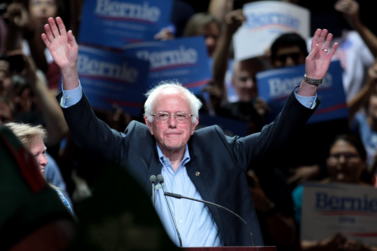give your definition of capitalism.
It's easier to point out what it is not.
Nowhere in Capitalism do we find where the government bails out a failed business.
Bailouts are political decisions but the government can in some circumstances bail out a business and make money in the process.
This gets old. If that ever happens, let me know. And note it did not happen.
We were lied to. Tarp funds were paid back with Harp funds which were never paid back.
I said in some circumstances, not every circumstances, so yes this cherry-picking of yours does get old rather quick.
It's never happened so..........what good is such a theory?
Just because you proclaim "It's never happened" does not make it true.
https://money.usnews.com/investing/...risis-bailouts-have-earned-taxpayers-billions
"
In total, 11 companies received at least $10 billion in bailouts from the government during the financial crisis. However, the government wasn't simply lending money to these companies. It was investing in them by taking ownership stakes. In most cases, the government was essentially buying shares of stock much like ordinary investors do in their trading accounts.
For the most part, the government was later able to sell those shares of stock for a large profit in the years that followed. In fact, the government took a loss on only two of its 25 largest bailouts.
Mortgage aggregators Fannie Mae and Freddie Mac were the two largest financial crisis bailouts. Together, Fannie and Freddie received nearly $190 billion in bailout funds. However, the government has now netted more than $68 billion in profit from the investment. Both companies trade on over-the-counter markets.
Taxpayers also made a killing on the vast majority of bank bailouts as well. The government turned a profit of more than $13.4 billion on its Citigroup (ticker: C) bailout. It also added $5 billion in profit from the American International Group (AIG) bailout, $4.5 billion from the Bank of America Corp. (BAC) bailout and $3 billion from the GMAC bailout.
Of course, not all the bailouts worked out quite as well. Taxpayers lost $11.3 billion on the $50.7 billion General Motors Co. (GM) bailout. Other investments, such as the $3.4 billion Ocwen Financial Corp. (OCN) bailout, the $1 billion Select Portfolio Servicing bailout and the $973 million Nationstar Mortgage Holdings (NSM) bailout ended up total taxpayer losses.
Still, one thing seems clear: taxpayers came out ahead. In total, $623 billion in taxpayer money was dispersed via bailouts and roughly $698 billion has come back via dividend revenue, interest, fees and asset sales. It doesn't take a math genius to see the bailouts ultimately earned taxpayers more than $75 billion in profit, and that number is still growing."



